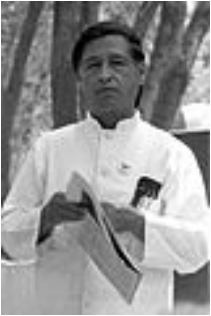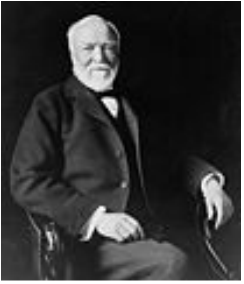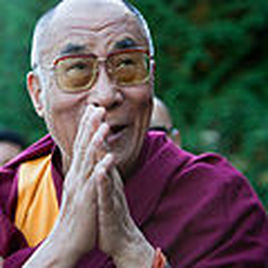By Lisa Houston
“Tell me, is love still a popular suggestion
Or merely an obsolete art?
Forgive me for asking this simple question.
I’m unfamiliar with this part,
I’m a stranger here myself.”
Ogden Nash (Lyrics to “Stranger Here Myself”, music by Kurt Weill)
As journalists struggle to describe vast numbers of people moving across Europe, a panoply of labels decorates the headlines. Many of these words leave behind monochromatic impressions which are inherently false when applied to a such a large group of people, whose intentions and situations are often quite disparate.
As always, word choice is playing a large part in our perceptions. Language has the power to direct our emotions, sculpt our opinions. And once language takes hold, it becomes a frame for our understanding, leaving things that lie outside its borders neglected or even denied.
Consider Germany, which last year accepted about a million refugees (Flüchtlinge). Even as the chancellor wins international praise for this policy, a strong anti-immigrant movement is on the rise and some interesting German words are attaching themselves to the situation. Many of them, not surprisingly, are compound words.
Fremdhass
This word translates literally as a hatred of strangers, though it is often translated as xenophobia, which is a fear (phobia) of strangers.
Fremdfeindlichkeit
This means hostility to strangers, though it is also often translated as xenophobia.
Überfremdung
This is a rightwing word meaning “over-foreignization.”
Side note: Spellcheck does not think that foreignization is a word. Actually, it is, but it refers to linguistic practices in translation. Namely: incorporating elements of the language of origin into a translation. Foreignization contrasts with domesticization. In the latter case, the translation adheres strictly to the secondary language. (Fortunately, language doesn’t respect national boundaries, and so-called "foreignization" is more or less the norm.)
“Tell me, is love still a popular suggestion
Or merely an obsolete art?
Forgive me for asking this simple question.
I’m unfamiliar with this part,
I’m a stranger here myself.”
Ogden Nash (Lyrics to “Stranger Here Myself”, music by Kurt Weill)
As journalists struggle to describe vast numbers of people moving across Europe, a panoply of labels decorates the headlines. Many of these words leave behind monochromatic impressions which are inherently false when applied to a such a large group of people, whose intentions and situations are often quite disparate.
As always, word choice is playing a large part in our perceptions. Language has the power to direct our emotions, sculpt our opinions. And once language takes hold, it becomes a frame for our understanding, leaving things that lie outside its borders neglected or even denied.
Consider Germany, which last year accepted about a million refugees (Flüchtlinge). Even as the chancellor wins international praise for this policy, a strong anti-immigrant movement is on the rise and some interesting German words are attaching themselves to the situation. Many of them, not surprisingly, are compound words.
Fremdhass
This word translates literally as a hatred of strangers, though it is often translated as xenophobia, which is a fear (phobia) of strangers.
Fremdfeindlichkeit
This means hostility to strangers, though it is also often translated as xenophobia.
Überfremdung
This is a rightwing word meaning “over-foreignization.”
Side note: Spellcheck does not think that foreignization is a word. Actually, it is, but it refers to linguistic practices in translation. Namely: incorporating elements of the language of origin into a translation. Foreignization contrasts with domesticization. In the latter case, the translation adheres strictly to the secondary language. (Fortunately, language doesn’t respect national boundaries, and so-called "foreignization" is more or less the norm.)
 Cesar Chavez: American Farm Worker and Activist, helped win rights for "migrant" workers.
Cesar Chavez: American Farm Worker and Activist, helped win rights for "migrant" workers. It is always the writer’s responsibility to consider what will be evoked in the mind of the reader. I don’t want to write about a “riot” when it was a “tussle.” But if I don’t know if it was a riot or a tussle, I might say it was a “disturbance,” even though that doesn’t convey much. Writers also have to keep an eye on word count, trying to cram as much information as possible into each word. If you can cram two facts into one word, even better. But which word? Which of these labels does the job best to describe these diverse masses?
Before we pin down our thinking, let’s take a look at some of the most popular contenders.
Some Definitions
(Source: the oldest, hardest-to-lift dictionary I could get my hands on.)
Refugee
This noun comes from the French, refugie, which was first applied to the Huguenots, who migrated to Flanders and America. In 1685, the Edict of Nantes was revoked. Protestantism was, once again, illegal, and the Huguenots fled to avoid persecution. The first definition of refugee is “One who flees to a shelter or place of safety.” The second definition is more specific to its origins: “one who in times of war, political or religious persecution, etc. flees to a foreign power or country for safety.”
Emigrant
Noun. One who emigrates. From the Latin verb, emigrare, meaning to move away. To emigrate is to leave one country, state or region, and settle in another. The French noun émigré was used to describe the nobles who fled France after the revolution.
Immigrant
Immigrant is from the past participle of the Latin verb immigrare meaning to go into, or remove into. Specifically, it means to come into a new country, or region or environment in order to settle there. An immigrant is a person who immigrates.
The word immigrant is being misused quite often in the news lately, or at least it’s being used prematurely. When someone is attempting to leave a region, he or she is an emigrant. Once they are in a new country, then he or she is an immigrant of that country. The choice between emigrant and immigrant has mainly to do with the point of reference. If you are speaking mostly about the country of origin, then you might use emigrant. If your point of reference is the new country, you might use immigrant.
He is a French emigrant. (He left France.)
She is an American immigrant. (She came to America.)
Before we pin down our thinking, let’s take a look at some of the most popular contenders.
Some Definitions
(Source: the oldest, hardest-to-lift dictionary I could get my hands on.)
Refugee
This noun comes from the French, refugie, which was first applied to the Huguenots, who migrated to Flanders and America. In 1685, the Edict of Nantes was revoked. Protestantism was, once again, illegal, and the Huguenots fled to avoid persecution. The first definition of refugee is “One who flees to a shelter or place of safety.” The second definition is more specific to its origins: “one who in times of war, political or religious persecution, etc. flees to a foreign power or country for safety.”
Emigrant
Noun. One who emigrates. From the Latin verb, emigrare, meaning to move away. To emigrate is to leave one country, state or region, and settle in another. The French noun émigré was used to describe the nobles who fled France after the revolution.
Immigrant
Immigrant is from the past participle of the Latin verb immigrare meaning to go into, or remove into. Specifically, it means to come into a new country, or region or environment in order to settle there. An immigrant is a person who immigrates.
The word immigrant is being misused quite often in the news lately, or at least it’s being used prematurely. When someone is attempting to leave a region, he or she is an emigrant. Once they are in a new country, then he or she is an immigrant of that country. The choice between emigrant and immigrant has mainly to do with the point of reference. If you are speaking mostly about the country of origin, then you might use emigrant. If your point of reference is the new country, you might use immigrant.
He is a French emigrant. (He left France.)
She is an American immigrant. (She came to America.)
 Andrew Carnegie, Scottish "emigrant", American "immigrant", Industrialist and Philanthropist.
Andrew Carnegie, Scottish "emigrant", American "immigrant", Industrialist and Philanthropist. Migrate (and migrant) are from the Latin verb, migrare, meaning to move, but there is no inclusion in that word of an intention to settle. For some time “Migrant” was rarely if ever used in these news reports, perhaps because it is assumed that the people fleeing do not intend to return to their native countries. But was that a reasonable assumption? I would imagine many of these people are in crisis situations, and their choices are more based on immediate safety than long-term intentions. And now, certain news outlets seem to be favoring the word migrant, perhaps because it is relatively denuded of political implication.
Asylum
Asylum, for our purposes, means refuge granted by a sovereign nation, whether given temporarily or permanently. There’s a big argument going on in Germany, as some voices want to curtail the three years of asylum offered to just one year, (and other extreme voices have more violent suggestions.) It is from the Latin, Asylum, meaning sanctuary, and the Greek, Asylon, meaning refuge. Both have the meaning of protection. An asylum is an inviolate space. Its previous use for institutions of mentally ill people held that meaning as well, since the stated purpose of such places was to shelter those people from harm. I include it here because many news outlets are referring to people as "Asylum-seekers."
Levantine.
This word probably would have been ubiquitous had this crisis taken place a century ago, but these days is nowhere to be seen in the media.
This word refers to someone from the Levant, meaning the east. One of the reasons the word “Orientals” went out of use is because it assumes a perspective. Its translations, “Easterners” implied a central point somewhere to the west. It came to be understood that the word was Euro-centric. That is my guess why we no longer use the word Levantine. Specifically, it refers to people from the regions of the eastern Mediterranean and Aegean seas, including Greece, and Egypt, as well as Syria, Lebanon, and Palestine, which now includes Israel. It may also refer to a black twill cloth, or a ship from that region, the Levant.
Mark Twain used the word Levantine in his travel writings and Somerset Maugham uses it in his short story, Mr. Know-All. I first became aware of the root of this word because of a bread I like, called a Levant, which goes to the word’s origin: the Latin verb levare, to rise up. That’s how the word came to mean the Orient, because the sun “rises up” in the east.
Maybe it wouldn't be such a bad thing if we referred to these people as Riser Uppers. We would at least be more aware of their incredible bravery and strength, instead of focusing solely on what we think (or fear) they want from us. Even the more accurate compound words that many media outlets have settled on, like “asylum-seekers” or “would-be immigrants” define the people by what they want instead of what they’ve been through, and the heroism many of them have shown in the face of terrible conditions.
There is a host of other words that are for the most part not being used, perhaps because they are not descriptive enough. But they are not inaccurate, and I want to list them here, so you can read them and just feel how differently they land on your mind, compared with some of the words we’ve been talking about. We’ve been so inundated by the media’s preferred choices, we may not even be aware how those choices have been erecting frames of understanding in our mind’s eye. Consider this little exercise deprogramming.
OK. Here we go. Forget everything you’ve heard or read, and just imagine…
A stranger
Foreigner
Newcomer
Visitor
Guest
Traveler...
Asylum
Asylum, for our purposes, means refuge granted by a sovereign nation, whether given temporarily or permanently. There’s a big argument going on in Germany, as some voices want to curtail the three years of asylum offered to just one year, (and other extreme voices have more violent suggestions.) It is from the Latin, Asylum, meaning sanctuary, and the Greek, Asylon, meaning refuge. Both have the meaning of protection. An asylum is an inviolate space. Its previous use for institutions of mentally ill people held that meaning as well, since the stated purpose of such places was to shelter those people from harm. I include it here because many news outlets are referring to people as "Asylum-seekers."
Levantine.
This word probably would have been ubiquitous had this crisis taken place a century ago, but these days is nowhere to be seen in the media.
This word refers to someone from the Levant, meaning the east. One of the reasons the word “Orientals” went out of use is because it assumes a perspective. Its translations, “Easterners” implied a central point somewhere to the west. It came to be understood that the word was Euro-centric. That is my guess why we no longer use the word Levantine. Specifically, it refers to people from the regions of the eastern Mediterranean and Aegean seas, including Greece, and Egypt, as well as Syria, Lebanon, and Palestine, which now includes Israel. It may also refer to a black twill cloth, or a ship from that region, the Levant.
Mark Twain used the word Levantine in his travel writings and Somerset Maugham uses it in his short story, Mr. Know-All. I first became aware of the root of this word because of a bread I like, called a Levant, which goes to the word’s origin: the Latin verb levare, to rise up. That’s how the word came to mean the Orient, because the sun “rises up” in the east.
Maybe it wouldn't be such a bad thing if we referred to these people as Riser Uppers. We would at least be more aware of their incredible bravery and strength, instead of focusing solely on what we think (or fear) they want from us. Even the more accurate compound words that many media outlets have settled on, like “asylum-seekers” or “would-be immigrants” define the people by what they want instead of what they’ve been through, and the heroism many of them have shown in the face of terrible conditions.
There is a host of other words that are for the most part not being used, perhaps because they are not descriptive enough. But they are not inaccurate, and I want to list them here, so you can read them and just feel how differently they land on your mind, compared with some of the words we’ve been talking about. We’ve been so inundated by the media’s preferred choices, we may not even be aware how those choices have been erecting frames of understanding in our mind’s eye. Consider this little exercise deprogramming.
OK. Here we go. Forget everything you’ve heard or read, and just imagine…
A stranger
Foreigner
Newcomer
Visitor
Guest
Traveler...
 "Exile" His Holiness the 14th Dalai Lama of Tibet, which is still under Chinese governance. His Holiness left Tibet in 1959, and runs the Tibetan Government in Exile from India.
"Exile" His Holiness the 14th Dalai Lama of Tibet, which is still under Chinese governance. His Holiness left Tibet in 1959, and runs the Tibetan Government in Exile from India. I believe we are asking more of our media these days, and that’s a good thing. We want them (us?) to be accurate, but we also want them to be humane. (Humane. Adjective. Having what are considered the best qualities of mankind; kind, tender, merciful, considerate, etc.) This is why I bristle when I hear the term “economic refugees.” It’s not compassionate to my ears. It makes it sound like a budgeting choice. And just what is a “political refugee” anyway? If someone is in fear for his or her life at the hands of a government, surely this is not about governance or political control of that person any more. It is a deeply personal, life-or-death issue and to be accurate, one must call that person persecuted or threatened.
Questions:
When my Jewish ancestors fled what is now Lithuania in the 1880's because Jews in that region were experiencing massive, organized brutality, were they “political refugees?”
When people in Ireland fled The Hunger more than a century ago, were they “economic refugees?”
And did you feel differently reading that last sentence because I called it “The Hunger” which was the name used by those who suffered through it, versus calling it “The Great Famine” or the “Irish Potato Famine” which were names assigned to it by historians?
This brings us to what may be the most important part of the discussion: the right for human beings to define themselves. In modern usage, to “self-identify.” More and more we recognize this as an important right.
The anti-immigrant demonstrators in Dresden gather right outside of the opera house, which has beautifully decorated itself with banners and video messages of tolerance and inclusion. Even the inside of the program there is the message: Refugees are welcome here. On a recent visit, I attended a performance there and heard the quintessential German romantic opera, Der Freischütz.
The conflict in this morality tale is resolved by the appearance of the Hermit. This enigmatic character is similar to the Wanderer in Wagner’s Ring Cycle. He is a stranger who keeps himself apart. In Der Freischütz, he appears only in the final act, when someone is about to be punished. As an outsider to the group, it is agreed that his presence as “the far and wide” honors them, and they agree to respect his judgment, which is one of forgiveness and inclusion. It is a beautiful moment in opera, the healing of a community by the forgiving wisdom of a broader perspective.
In contrast, the demonstrators outside the opera house rail against “Überfremdung” while carrying flowers and chanting, “Wir sind das Volk!” We are the people. Its the usurping of a phrase that once carried a beautiful, peaceful message also on Monday nights in Dresden. In 1989, peaceful protesters chanted it as they gathered to topple the brutal East German regime. Now, those same words resonate on a different frequency, as the phrase is attached to anti-refugee, anti-immigrant, anti-other rhetoric that continues to escalate in violence.
We are the people, they chant now. We. Implying, I suppose, that you are something else.
Questions:
When my Jewish ancestors fled what is now Lithuania in the 1880's because Jews in that region were experiencing massive, organized brutality, were they “political refugees?”
When people in Ireland fled The Hunger more than a century ago, were they “economic refugees?”
And did you feel differently reading that last sentence because I called it “The Hunger” which was the name used by those who suffered through it, versus calling it “The Great Famine” or the “Irish Potato Famine” which were names assigned to it by historians?
This brings us to what may be the most important part of the discussion: the right for human beings to define themselves. In modern usage, to “self-identify.” More and more we recognize this as an important right.
The anti-immigrant demonstrators in Dresden gather right outside of the opera house, which has beautifully decorated itself with banners and video messages of tolerance and inclusion. Even the inside of the program there is the message: Refugees are welcome here. On a recent visit, I attended a performance there and heard the quintessential German romantic opera, Der Freischütz.
The conflict in this morality tale is resolved by the appearance of the Hermit. This enigmatic character is similar to the Wanderer in Wagner’s Ring Cycle. He is a stranger who keeps himself apart. In Der Freischütz, he appears only in the final act, when someone is about to be punished. As an outsider to the group, it is agreed that his presence as “the far and wide” honors them, and they agree to respect his judgment, which is one of forgiveness and inclusion. It is a beautiful moment in opera, the healing of a community by the forgiving wisdom of a broader perspective.
In contrast, the demonstrators outside the opera house rail against “Überfremdung” while carrying flowers and chanting, “Wir sind das Volk!” We are the people. Its the usurping of a phrase that once carried a beautiful, peaceful message also on Monday nights in Dresden. In 1989, peaceful protesters chanted it as they gathered to topple the brutal East German regime. Now, those same words resonate on a different frequency, as the phrase is attached to anti-refugee, anti-immigrant, anti-other rhetoric that continues to escalate in violence.
We are the people, they chant now. We. Implying, I suppose, that you are something else.
That’s the word we’ve been looking for, by the way, the one that fits every single one of these refugees, emigrants, immigrants, and asylum-seekers. People.
At a rally I attended this autumn in Berlin, this point was made poignantly by one of the speakers. All the major parties had a presence that night, which was the same night the anti-immigrant party had hoped to take its march through the historic Brandenburg Gate. The organized coalition (picture democrats and republicans sharing a stage!) prevented the anti-immigrant group from passing, and our shouts and whistles followed them as they were forced to take the long way around. As the sun set over the podium, an illuminated message appeared on the Gate: “Für ein Weltoffenes Berlin,” For a Berlin open to the world.
Back to our choice of words:
The speaker that night told the story of a young boy, who was asked by a reporter, “bist du ein Flüchtling?”
Are you a refugee?
“Nein,” the child answered, “Ich bin nur ein Kind.”
No, he answered, I am only a child.
At a rally I attended this autumn in Berlin, this point was made poignantly by one of the speakers. All the major parties had a presence that night, which was the same night the anti-immigrant party had hoped to take its march through the historic Brandenburg Gate. The organized coalition (picture democrats and republicans sharing a stage!) prevented the anti-immigrant group from passing, and our shouts and whistles followed them as they were forced to take the long way around. As the sun set over the podium, an illuminated message appeared on the Gate: “Für ein Weltoffenes Berlin,” For a Berlin open to the world.
Back to our choice of words:
The speaker that night told the story of a young boy, who was asked by a reporter, “bist du ein Flüchtling?”
Are you a refugee?
“Nein,” the child answered, “Ich bin nur ein Kind.”
No, he answered, I am only a child.

 RSS Feed
RSS Feed